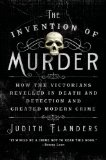Summary | Excerpt | Reviews | Beyond the book | Read-Alikes | Genres & Themes | Author Bio

An Extraordinary Edwardian Case of Deception and Intrigue
by Piu Marie EatwellIn 1898, Mrs. Anna Maria Druce approached the London Ecclesiastical Court with a highly unusual request: She asked that the court permit the exhumation of her father-in-law T.C. Druce, who had supposedly died 24 years previously. She stated she had proof that the man was not who he'd claimed to be, that he was in fact William John Cavendish-Bentinck-Scott, 5th Duke of Portland, that he had faked his own death, and that the coffin was empty. So begins the labyrinthine mystery that author Piu Marie Eatwell unravels in her impeccably researched nonfiction book, The Dead Duke, His Secret Wife, and the Missing Corpse.
Eatwell is remarkably adept at helping her readers keep track of this cast of characters and their motivations. This seemingly open-and-shut case became immensely complicated as it rolled through England's legal system, particularly as more information was revealed about the lives of both T.C. Druce and the Duke, both of whom were rather eccentric. The book deftly explains all the ins and outs of the litigation, leading readers through what could be a long series of very confusing legal proceedings. The various suits filed, innumerable motions granted and denied, and multiple hearings involved a large number of people as more relatives and witnesses (real and counterfeit) appeared on the scene to contest the actions of one party or another, and the ordeal impacted the fortunes of many individuals before it was finally resolved in 1908.
In spite of delving into what could be the rather dry world of the English legal system, the author keeps the plot mostly moving at a brisk pace. In addition to investigating the main case – whether or not T.C. Druce was the same person as the Duke – she illustrates each of these men's characters as well as the backgrounds of the participants in the legal proceedings (including various lawyers and detectives involved), bringing them to life and helping readers understand what drove them to either contest or drive for Druce's exhumation. Along the way she illuminates what life was like for Londoners during the period, including information on workhouses, debtor's prisons, and the influence the burgeoning newspaper industry had on the case. I consequently found the book informative and entertaining from start to finish.
I was also impressed with Eatwell's research. It is evident that she spent many hours poring over old court documents, letters, newspaper articles and photographs in dusty archives of libraries across England. Interestingly, she was still discovering more about the parties involved even after the initial publication of her book in September 2014. The case was certainly well documented, having been followed avidly by the public as scandal after scandal was revealed, but pulling all this information together into a coherent, authoritative account must have been a herculean task, and one which the author accomplishes with aplomb.
My only quibbles concern the writing mechanics. The author frequently opens chapters talking about a person she only refers to generically at first (e.g., "the man"), later giving the individual a name in a grand revelation ("That man was..."). It's not a bad technique, but when used repeatedly it gets old. I also found the same to be true of her habit of ending each chapter with a cliff-hanger; again, once or twice is fine, but there comes a point where it starts to become tiresome. And finally, there's an over-abundance of commas, which I thought made the writing choppy and difficult to understand at times. These complaints are stylistic choices and they may be my own prejudices, but I'd be remiss if I didn't note them. And, while I did notice these aspects of her writing, it didn't impact my enjoyment of the overall narrative much at all.
I found the book as intriguing as its title; it reads like a cross between an Agatha Christie novel and a supermarket tabloid. The story of this riveting case is so deliciously twisted and convoluted that I found myself smiling in appreciation at each revelation, and I can imagine many readers feeling the same.
![]() This review was originally published in The BookBrowse Review in October 2015, and has been updated for the
October 2016 edition.
Click here to go to this issue.
This review was originally published in The BookBrowse Review in October 2015, and has been updated for the
October 2016 edition.
Click here to go to this issue.

If you liked The Dead Duke, His Secret Wife, and the Missing Corpse, try these:

by Laura Cumming
Published 2016
From one of the world's most expert art critics, the incredible true story - part art history and part mystery - of a Velázquez portrait that went missing and the obsessed nineteenth-century bookseller determined to prove he had found it.

by Judith Flanders
Published 2014
In this fascinating exploration of murder in the nineteenth century, Judith Flanders examines some of the most gripping cases that captivated the Victorians and gave rise to the first detective fiction.
Your guide toexceptional books
BookBrowse seeks out and recommends the best in contemporary fiction and nonfiction—books that not only engage and entertain but also deepen our understanding of ourselves and the world around us.